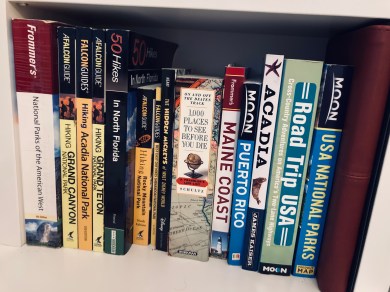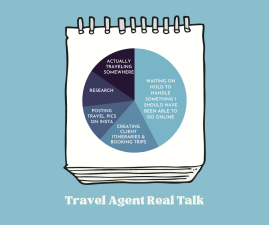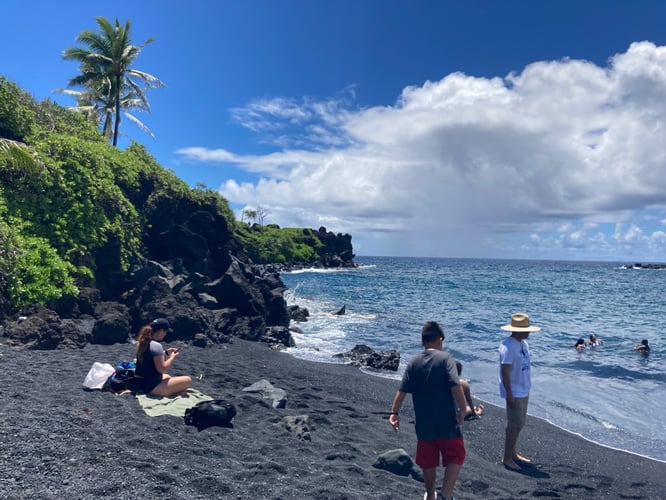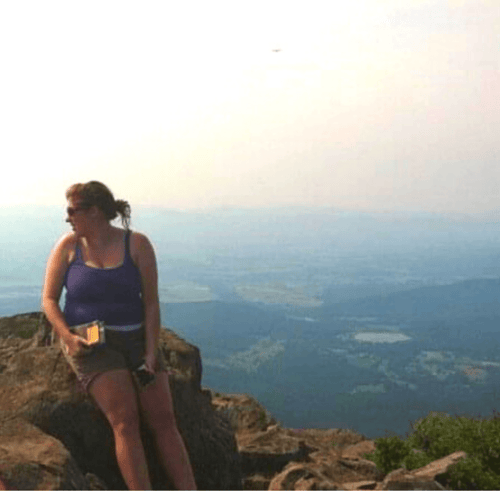How to be a Confident Traveler: Part 1
Recently, I was discussing my winter solo travel experience with an acquaintance. After telling her about my adventure, her first response was “you are so brave! I could never do that alone!” Her comments really made me think about traveling from a different lens. Travel is not just a hobby or something you do; traveling well is a skill. Like anything in life, the more you practice, the easier it becomes. I’ve made travel a priority in my life, and I get the opportunity to practice fairly frequently. Over the next few posts, I’ll outline some of the essential skills that I’ve learned over the years that help me to be a confident traveler.
Essential Skill 1: Find & Use good information
The most important thing you can do to be a confident traveler is to find good information before and during your trip. In the internet era, it’s easier than ever to find information but knowing how to find GOOD information can be another story altogether.
Guidebooks
If I’m headed to a new destination, or to a place I haven’t been for a while, I typically will start with a guidebook. While a bit old-fashioned, guidebooks are typically packed with researched, vetted information. Sights, background information, hotel recommendations, neighborhood descriptions, and cultural tidbits are typically all covered in a good guidebook.

There are many guidebook series available; some of my favorites are Rick Steves (for Europe), Falcon Guides (for national parks/hiking), and Moon Handbooks (for most everywhere). When borrowing or purchasing a guidebook, there are two things to keep in mind. First, make sure you are using the newest edition available; things change frequently, and it’s important to have up-to-date information. And second, try to find the most specific guidebook to your destination. If you’re going to Paris, get a guidebook for Paris rather than one that covers all of France.
Once you have a guidebook, make sure to give it a read prior to your trip! While you don’t need to read it cover-to-cover, at least take a glance at the recommended sights, some of the background and cultural information, and get an idea of how to structure your time at the destination. A pre-trip read will help you identify any sights or experiences that need to be booked ahead of time.
The Internet
Another great place to look for travel information is the internet. I frequently will start with the local tourist office; while some of these websites can focus too much on promoting specific hotels or destinations, they tend to be a great overall look at the place you’re visiting. On our recent trip to Puerto Rico, I started our trip research at the official Puerto Rico tourism site Discover Puerto Rico. This is a fantastic example of a tourist office site, offering itinerary advice, maps, lists of things to do, and tons of ideas on how to organize your trip. Most tourist office sites also offer a free brochure or map to download; some even will send you a free hard copy if you fill out a short form.
Videos are also a great way to find travel information on the internet. Several travel agents, vloggers, and travel brands regularly post on YouTube. If you’re taking a cruise, visiting a resort, or headed to a theme park, this can be a great way to get an idea of the layout, must-sees, or any other details about your destination. Just search for “ShipName/ResortName Walkthrough” and you’ll find a ton of resources.
Finally, for researching things to do in your destination, I like to head over to Viator or GetYourGuide to see what’s available. I try to look for tours that have lots of reviews and ones that have a flexible cancellation policy. Another tour aggregator is Project Expedition; they tend to be really good with transfers, and frequently offer CityPass tickets that are hard to find on the other two sites. If you find something you really want to do, be sure you book ahead of time to avoid disappointment!
Television
There are some really great travel series available to stream or watch. The aforementioned Rick Steves has produced a series of videos about travel in Europe (available on PBS and YouTube), including a few specials specifically about travel skills. Samantha Brown’s “Places to Love” (PBS) and “Passport to Europe” (Travel Channel) give you a peek at destinations all over the globe; Places to Love is particularly strong with domestic destinations.
The late Anthony Bourdain starred in both the food-focused “No Reservations” and a travel series called “Parts Unknown;” two things I like about these series are that Bourdain is not afraid to point out the negative parts of travel, and he goes to some places that are much less talked about (like Columbia, for example). Both series are available to stream on a couple of the paid streaming services. Finally, Stanley Tucci has a series on CNN called “Searching for Italy” in which each episode focuses on a particular Italian region.
Although a television series may not give you the most up-to-date information about a destination, it can give you a really good look at some of the most famous sights and provide some education about cultural differences or the history of a location. Being informed about how people live in a particular destination helps to make your travel experiences more meaningful.
Other Travelers
Other travelers can be a great source of information! If you’re going to a popular destination, chances are you have a friend who has visited and would be more than happy to share what they know with you. Some destinations – like Walt Disney World – have hundreds of social media groups or websites dedicated to travel hacks and tips; if you’re taking a cruise, there’s a good chance that there is a Facebook group for your particular sailing. Folks in those groups are usually really generous with their advice, and some will even schedule meetups or events on the ship if you are looking for some social interaction.
Review sites like Google, Yelp or TripAdvisor can be good for reading about popular things to do in a destination, but I tend to disregard advice found there for restaurants and hotels. It’s tough to tell sometimes if those reviews are written by real travelers, or if an establishment has perhaps written their own reviews! If you make use of these sites, just keep in mind that all restaurants can have an off night and all hotels have a room that is their least desirable. Go and experience a place for yourself with an open mind rather than being influenced by one poor review.
A Good Travel Agent
Booking the components of your trip is just one thing that a good travel agent will do; a huge part of my job is to research things to do, advice for a good trip, and curate information and feedback from other travelers to share with my clients. For example, if I have a client going to Disney World, I will provide them with a list of recommended dining locations, a touring plan for inside the parks, and suggestions about what to pack. If you’re traveling to Yosemite, I’ll put together a packet of information about the park including a map, brochure, a suggested list of hikes, and a few places to grab a bite to eat nearby.
As a travel agent, I have access to a couple of really great resources: the other agents in my agency, and the suppliers/destination partners that we work with. If you’re interested in going somewhere that I haven’t been myself, I’m happy to reach out to my fellow agents on your behalf. I can also make contact with our partners in the destination to which you’re traveling to make sure we’ve got all the information that you’ll need.
Information in Your Destination
Once you’ve arrived in your destination, you have access to a couple of additional sources of information to make sure that you’re making the most of your visit.
The tourist information office in your destination is a great place to stop. Typically, these offices have things like maps, brochures, coupon books, and other things that might be helpful for a tourist. Some tourist information offices can do things like book tours and tickets, or provide hotel/restaurant advice. Be aware that some tourist offices will only promote locations that have paid to be promoted. This doesn’t necessarily mean that the attraction or restaurant isn’t worth visiting, but it’s important to keep this in mind. Even the most “sales-y” of tourist offices will have a rack of brochures highlighting local attractions. I like to do a quick scan of the brochure rack to see if there’s anything that catches my eye or that I may have missed in my previous research.
Another valuable source of information about your destination is your hotelier. The managers, front desk staff, and concierges of your lodging are locals and are accustomed to working with visitors on a daily basis. They have a knack for being able to provide advice that works well for most visitors, and most are genuinely happy to help a traveler get to know their city.
Up Next
With the correct type of information in hand, you’re ready to take on the world. But first, you need to get into town from the airport. In the next post in this series, we’ll tackle one of the most important skills for a confident traveler: mastering public transportation.
Ready to get started on your next adventure? Get started here.



